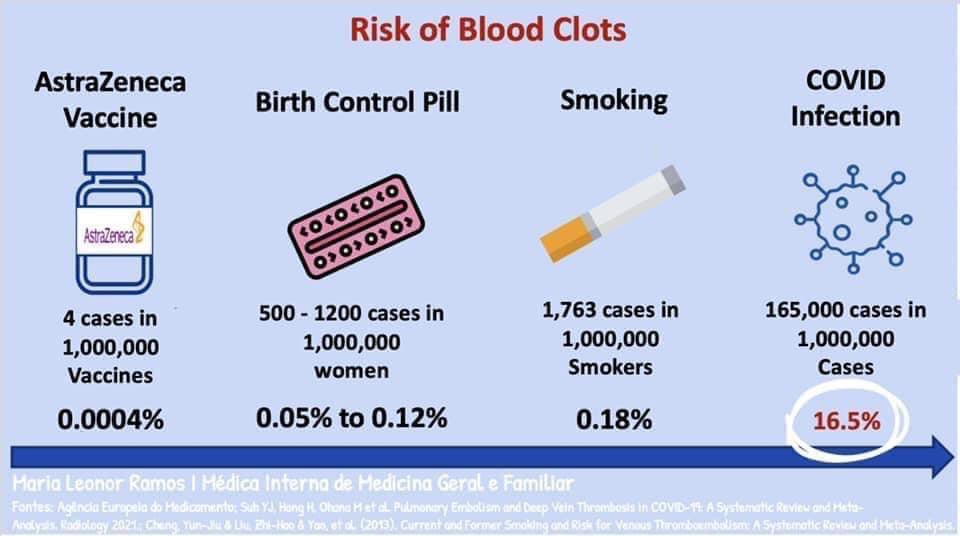Reminder: risks in perspective
With the news today that COVID-19 vaccinations are now available to all adults in the UK it is worth reminding ourselves of the perspective on the risks from the disease against those of the measures being taken to protect against it.
Anyone who has any doubts about whether the COVID-19 vaccines are suitable for them or a member of their family should discuss it with their GP or another appropriately qualified medical professional. There is no such thing as a totally risk-free medical procedure and there are a very small number of people who for valid reasons should not have any given treatment.
But the answer to this is check out the facts and make an informed decision based on the actual balance of risks - not to listen to the paranoid ravings of every tinfoil-hat wearing conspiracy theorist on the internet or of anti-vaxxers whose theories are in a different category from the flat earthers mainly in that belief in a flat earth has never killed anyone.
And the facts show that for the vast majority of adults the health risks of getting COVID-19 are vastly greater than any risks associated with the approved vaccines.
All the approved Coronavirus vaccines have been subject to extensive clinical tests involving thousands of volunteers over a period of months.
Has it been proven that there is no risk whatsoever from vaccination? No, or course not.
But can we say that there is concrete and immensely strong evidence that the vast majority of adults are orders of magnitude more likely to suffer death or other adverse health outcomes from catching COVID-19 if you don't get the vaccine than from COVID or the vaccine if you do? Yes, we can.
And here is a reminder of how the probabilities of getting rare blood clots which some people have suggested may be associated with the Oxford/AstraZeneca vaccine - though no causal link has ever been proven compares with other possible risk factors incuding COVID-19 itself:
This graphic shows the proportion of people who have had blood clots following one of a number of four possible events - having the Oxford AstraZeneca jab, taking the birth control pill, smoking, or catching COVID-19.
These percentages are an indication of correlation, not causation. The lower the level of correlation the weaker the argument that there is a causal connection.
But if there is a causal connection - which is not proven - the average person has about 40,000 times more risk of getting blood clots as a catching COVID-19 as they have of getting one as a result of being vaccinated with the Oxford/AstraZeneca jab.

Comments